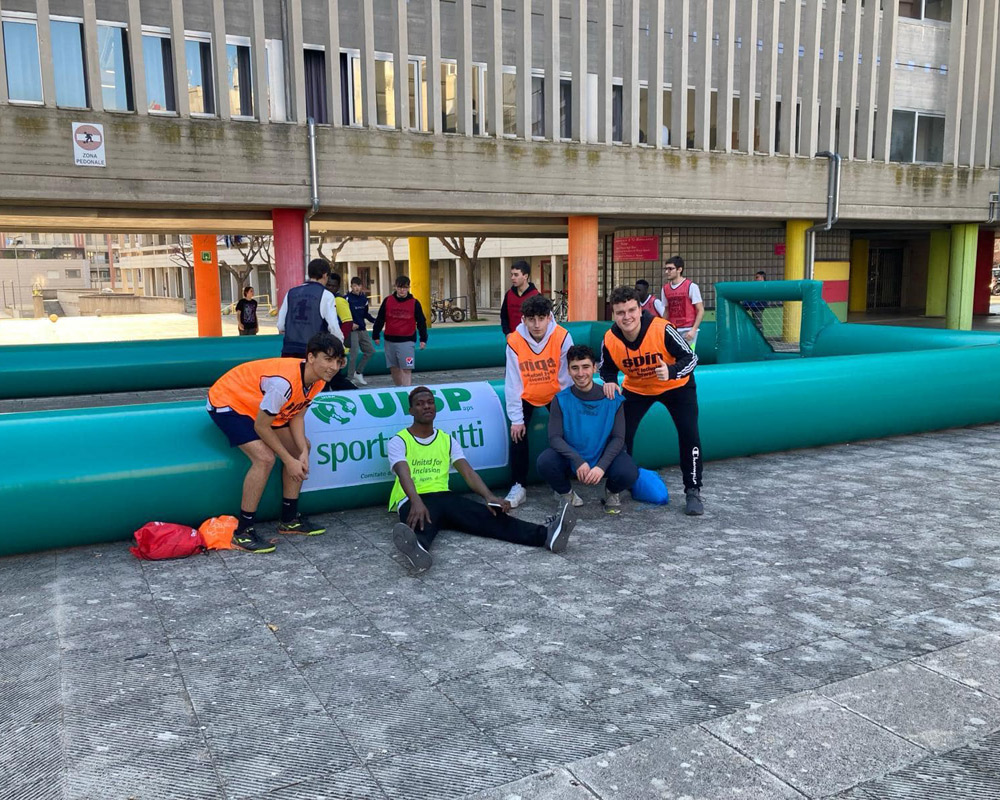
The Unione Italiana Sport Per tutti (UISP APS) was founded in 1948 and is a national, anti-fascist, and anti-racist association inspired by the principles of the Italian Constitution and opposed to all forms of discrimination. UISP promotes and upholds the values of sport against all forms of exploitation, alienation, and doping. It works for the well-being and health promotion of citizens, the protection of common goods and environmental sustainability, the values of human dignity, non-violence, and solidarity, as well as peace and interculturalism. UISP also cooperates with organisations that share these principles.
UISP Matera, located in southern Italy, is a local committee dedicated to social inclusion, education, and training. It organises sports activities for all and promotes various projects aimed at fostering the town’s development as a hub for socialisation.
The main objectives of the Placemaking and Sport Project Matera pilot are:
- Launching Urban Sports Transition workshops with residents of the pilot area in Matera.
- Producing and sharing placemaking model guidelines.
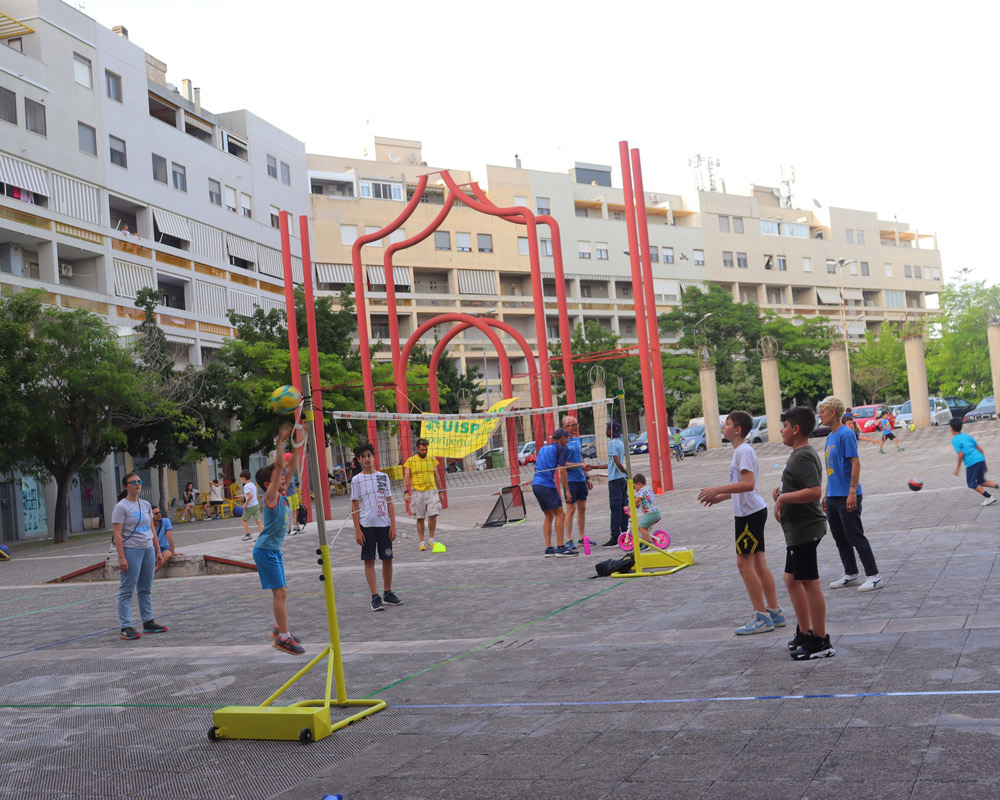
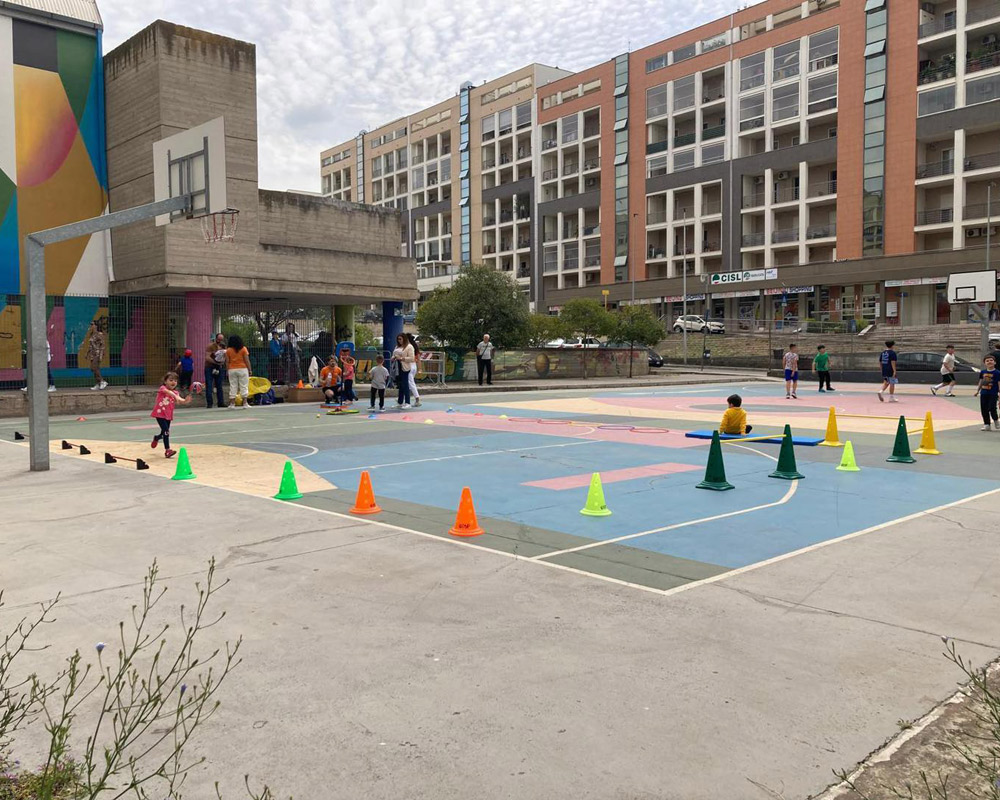
- Implementing pilot actions to raise awareness of the interconnection between civic, social, environmental, economic, and sports dimensions in urban regeneration processes.
- Encouraging young people to reflect, learn, and grow personally, fostering a deeper appreciation for their local environment.
- Establishing a network of local stakeholders to promote the applied placemaking model and ensure the long-term sustainability of the initiative.
The project activities were divided into five, free-of-charge programmes open to various age groups, with weekly sessions:
- Multisport: Designed for children aged 3 to 10, this programme includes play-based motor and psychomotor activities led by UISP-qualified sports instructors. Sessions take place once a week in indoor and outdoor settings.
- Sports for Boys and Girls: Aimed at teenagers aged 11 to 16, this programme introduces young people to sport while highlighting its benefits and fostering social connections. Activities include street soccer, basketball, dynamic yoga, pre-athletics, table tennis, and chess.
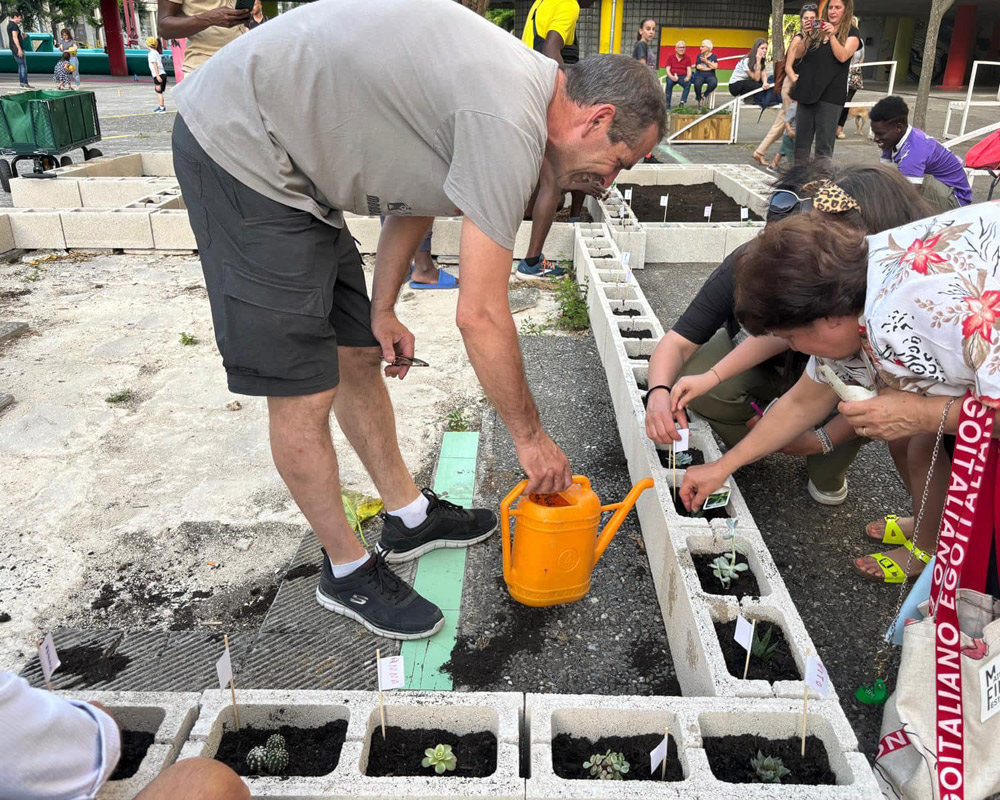
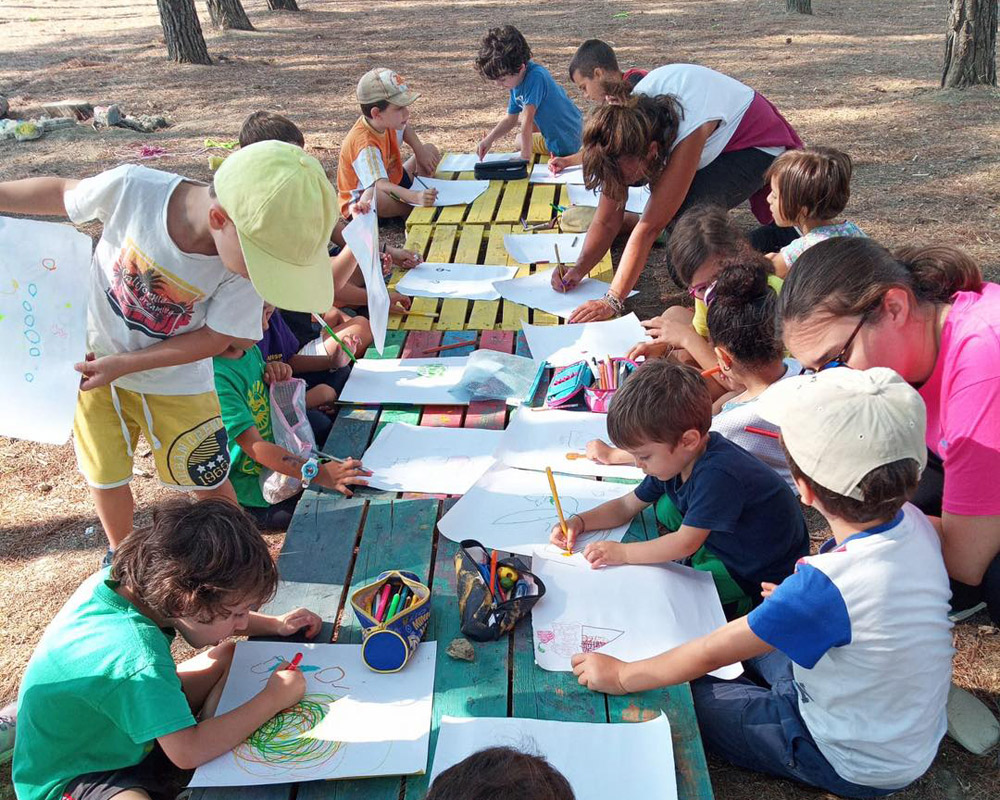
- Sport for Adults: This programme offers various activities to promote physical well-being while emphasising sport as a tool for social inclusion. Sessions include yoga, gentle gymnastics, walking groups, burraco, chess, and table tennis.
- Sports and Games for All Ages: Bringing together children, young people, and adults, this programme features both traditional and innovative sports and leisure activities, such as tchoukball, plogging, chess, and table tennis.
Through Placemaking and Sport, schools played a key role in co-designing and implementing sports education pathways that engaged the wider community. Acting as a catalyst for best practices, the initiative placed Sport for All and social inclusion at its core, using education as a foundation for lasting impact.
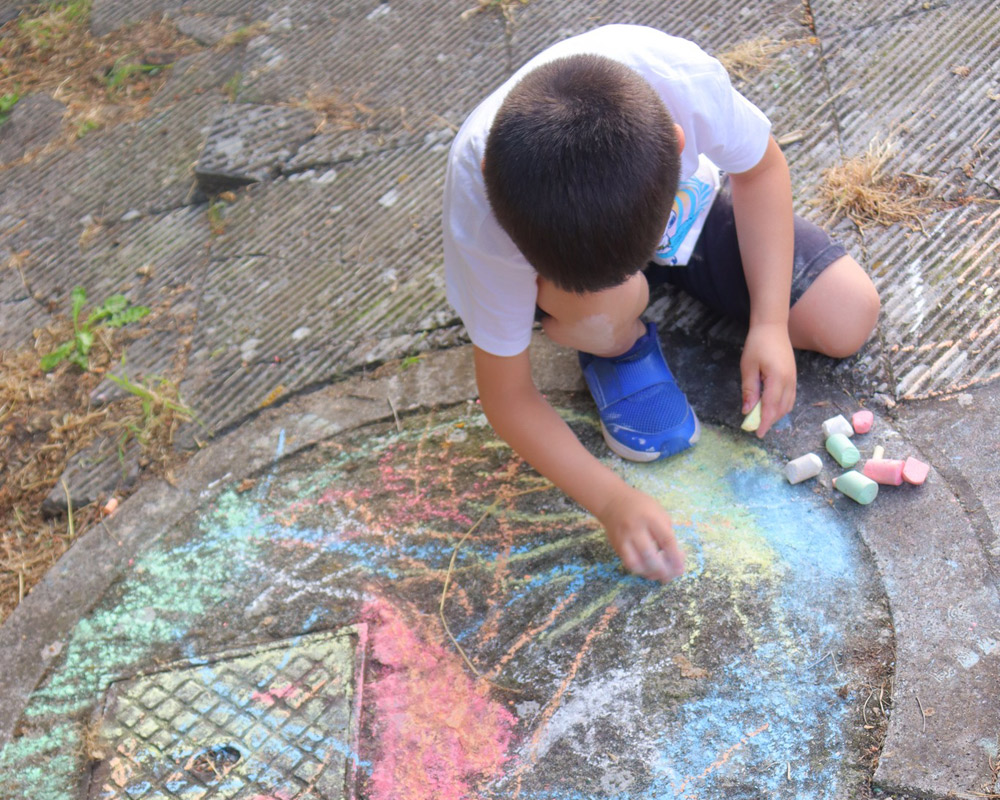

The sports activities introduced to students were highly innovative and aligned with the project’s goal of integrating placemaking through sport into urban regeneration and active citizenship efforts:
- Plogging – a sport created by Swedish athlete Erik Ahlström, combining jogging with litter collection to strengthen participants’ connection with their environment.
- Tchoukball – a unique mix of handball and basketball, which gained popularity in the 1980s and was recognised by the UN in 2001 as a "sport for peace and brotherhood."
Another key initiative involving both the school and local residents was the introduction of gardening activities. These served a dual purpose:
- Fostering an appreciation of beauty through hands-on active citizenship.
- Enhancing the liveability and appeal of public spaces, particularly the town square.

To see these initiatives come to life, watch our pilot video below showcasing the diverse activities carried out in Matera, Italy.

